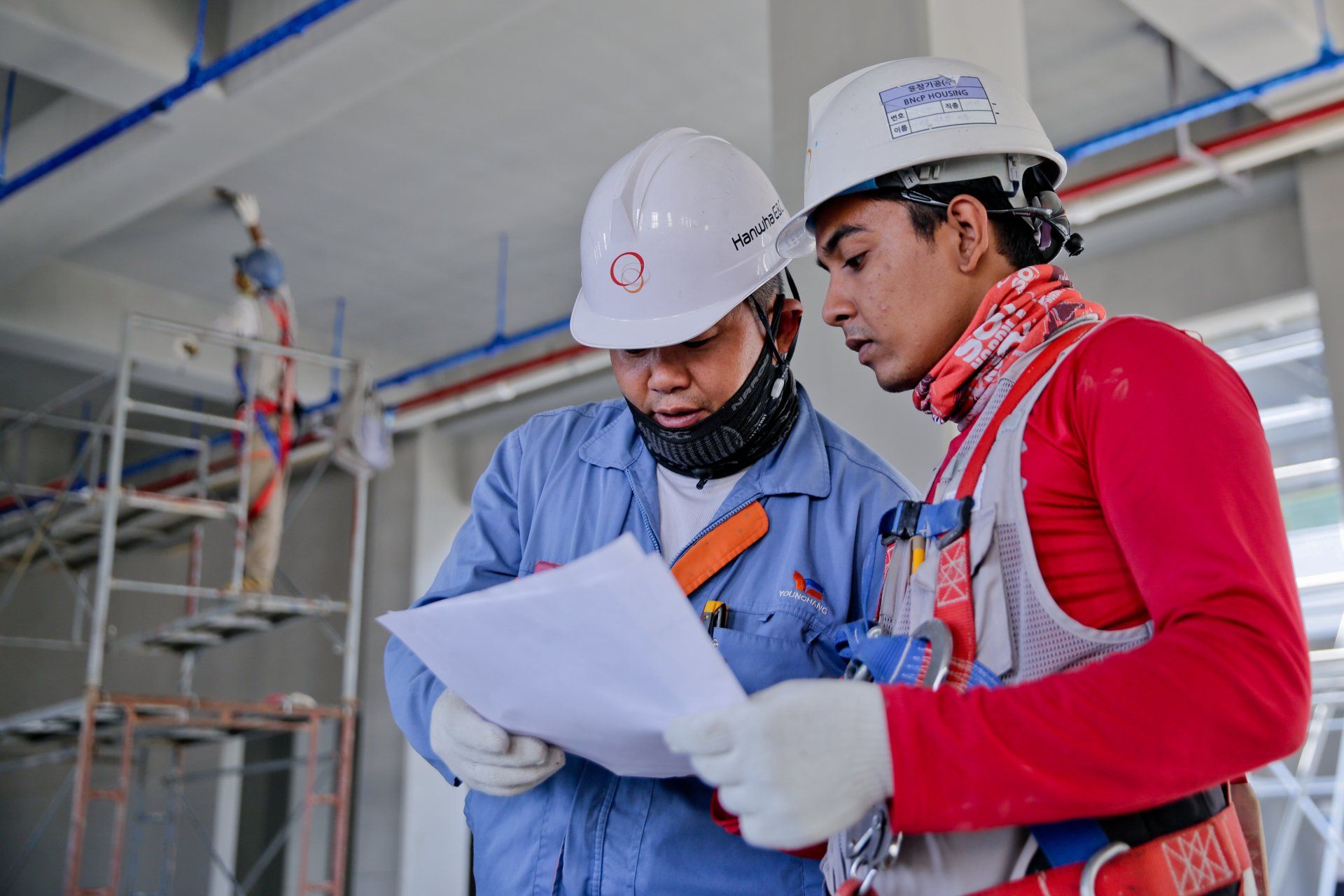PPVS Complete Facilities Management

How Facilities Management Supports the Industrial Sector
Industrial facilities across the UK can be very high-traffic, whether that’s through powering supply chains, manufacturing processes or large-scale logistics. These environments often operate on a 24/7 basis, handling critical infrastructure, high-value equipment, and continuous workflows. This high-pressure industry relies on reliability, as even minor disruptions can lead to significant production delays and financial losses.
Facilities management (FM) in the industrial sector directly supports this need, but it must be deeply integrated with operational processes to offer proactive and responsive solutions without ever interrupting the flow of goods, materials, or services. Whether it’s managing plant infrastructure, coordinating with logistics teams, or ensuring regulatory compliance across larger sites, FM is a central pillar of industrial success. In this guide, we’ll find out exactly how facilities management supports the industrial sector.
FM Guide Contents
- Hard Facilities Management Services
- Building Fabric Maintenance
- HVAC
- Soft Facilities Management Services
- Manned Security Grounds Maintenance Services
- Cleaning Services
- Reactive Facilities Management Services
- Reactive Electrical Maintenance Services
- Responsive Plumbing Services
- Planned Maintenance Services
- Water Hygiene Services
- Property Compliance Services
- The Benefits of Outsourcing Facilities Management
- Content Used to Construct This Guide
Minimising Disruption to Production and Logistics
Industrial facilities operate on tightly synchronised schedules. Production lines may run 24 hours a day, with materials arriving and finished goods shipping out in a continuous cycle. Facilities management must plan all activities, including repairs, maintenance, inspections, or installations, around these operations.
This requires a deep understanding of shift patterns, production downtime windows, and logistics bottlenecks. FM providers schedule work during planned maintenance breaks or low-activity periods and may need to deploy teams overnight or during weekends to ensure minimal disruption.
Clear communication between FM teams and production managers ensures that even urgent repairs are approached with minimal impact, using temporary solutions when needed until full fixes can be implemented during scheduled stops.
Managing Access to Restricted and High-Security Areas
Many industrial sites include restricted zones, such as hazardous material storage, high-voltage areas, confined spaces, or temperature-controlled facilities. Accessing these zones requires strict control measures, including permits to work, health and safety documentation, site inductions, and supervision.
Facilities teams must be fully compliant with site-specific protocols and possess the necessary accreditations, from working at height certifications to COSHH awareness for handling chemicals. Also, certain areas may require background-checked personnel due to the sensitive nature of operations or equipment.
Effective FM providers work closely with on-site security and health and safety teams to ensure every aspect of access, who enters, when, with what tools and for how long, is fully documented and compliant. It’s a process that requires intimate knowledge of the facility, but allows specialist FM providers to keep things moving smoothly even in crisis.
Challenges with Conventional Facilities Management in Manufacturing
Standard FM solutions, designed for office buildings or commercial settings, often fall short in manufacturing environments. These conventional approaches typically rely on generalist teams, daytime work windows, and minimal integration with operational schedules – none of which work well on a live production site.
Inflexible contracts may not accommodate planned shutdowns or shift-based production cycles, while unfamiliarity with manufacturing protocols can lead to delays, compliance breaches, or even safety incidents.
Another common gap is the lack of coordination with in-house departments. In manufacturing, FM must align not only with production and maintenance teams, but also with departments such as SHEQ (Safety, Health, Environment & Quality), compliance, and operations. Without this integration, even minor works can lead to major disruptions or audit failures.
As a result, manufacturing companies increasingly require tailored FM solutions, like that provided by our expert team at PPVS, that are purpose-built for their environment, delivered by providers who understand the complexity of production-led operations.

How Specialist Facilities Management Solutions Support Industrial Operations
To truly support the industrial sector, FM services must be tailored to the unique demands of continuous, high-output environments. This means offering technical skill, operational awareness, flexibility, and cross-departmental collaboration.
Specialist FM providers understand that work cannot interfere with core production or logistics activities. This type of support leans heavily into planned maintenance to ensure that work won’t impact day-to-day operations. They take a consultative approach, developing site-specific plans, allocating resources based on activity cycles, and offering scalable services that can change with production demands.
These FM teams also provide added value by supporting infrastructure upgrades, managing emergency response protocols, and helping facilities remain compliant with HSE, ISO and other important regulatory frameworks.
Coordinating Across Multiple Departments for Efficient Operations
Efficient facilities management in industrial environments relies on seamless communication across departments. FM professionals liaise daily with production teams, logistics coordinators, health and safety officers, site engineers, and senior management. This coordination ensures:
- Maintenance is aligned with operational goals.
- Emergency response is integrated into site protocols.
- Compliance documents are shared and up to date.
- Planned works don’t clash with critical production schedules
Regular site meetings, digital work tracking, and collaborative project planning allow FM providers to function as a strategic partner rather than a disconnected support service. This holistic integration helps streamline operations and reduces the risk of miscommunication or unexpected delays.
Contingency Planning for Parts and Stock to Avoid Downtime
Downtime in industrial settings can be costly, not only in lost output but in penalties, delayed deliveries, and reputational damage. A large part of effective FM is ensuring that essential parts, materials, and equipment are always available when needed. Specialist FM providers develop contingency plans that may include:
- Keeping a buffer stock of high-turnover or critical components.
- Establishing fast-track agreements with key suppliers.
- Maintaining mobile toolkits and rapid-response maintenance teams.
- Pre-authorising backup contractors for emergency cover.
Beyond this, stock tracking systems help FM teams monitor the condition and availability of parts across large sites, ensuring worn or obsolete components are replaced before they fail.
Essentially, this proactive approach helps facilities managers shift from a reactive maintenance model to a predictive, risk-managed strategy, greatly reducing the likelihood of unplanned downtime and improving overall site resilience.
Specialist Facilities Management is Essential for the Industrial Sector
Facilities management in the industrial sector demands far more than general maintenance. It requires a strategic partnership rooted in operational understanding, safety compliance, and seamless coordination. From managing access to high-security areas and scheduling work around production shifts to contingency planning for critical parts, FM providers help industrial sites remain safe, efficient, and productive.
If you’re looking for specialist industrial facilities management solutions, our team at PPVS is here to help. Please contact us today to discuss your needs.


Get in touch to see how we can help with your Facilities Management.
For general enquiries please fill out the form and our team will be back in touch. Or give us a call or email using the details below.





